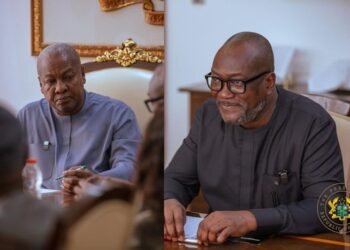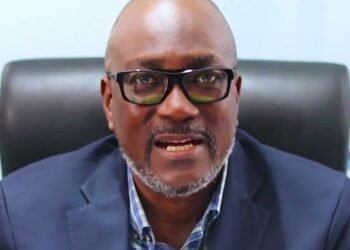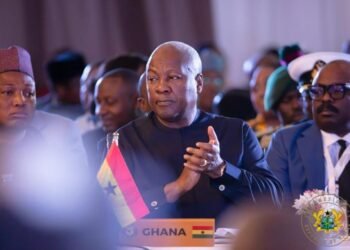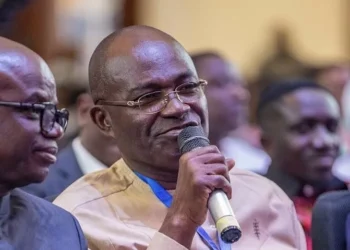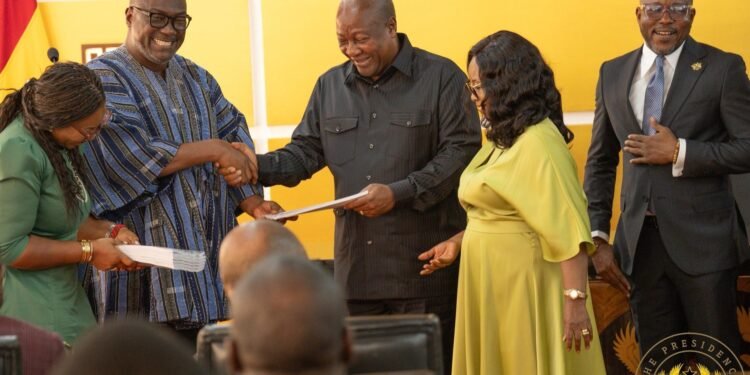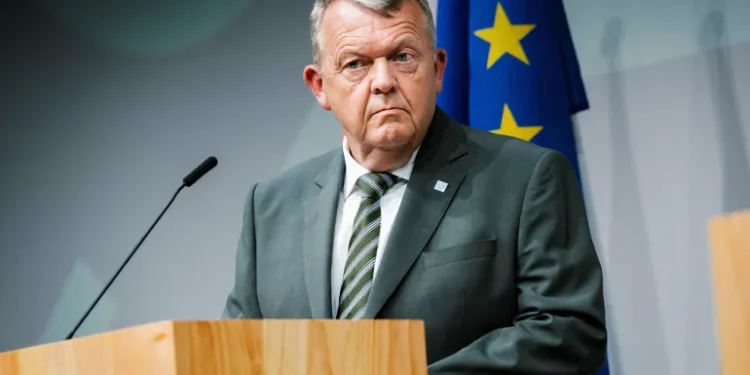As Ghana approaches another pivotal election, the role of the youth in shaping the country’s political landscape has never been more crucial.
With over 70 per cent of the country’s population falling within the youth bracket between 18 to 35 years coupled with the alarming unemployment rate in the country, their role in the upcoming general elections has become even more critical.
Professor Ransford Van Gyampo, a renowned Political Science Lecturer at the University of Ghana, in a compelling argument, underscored the significance of engaging young voters in meaningful dialogue ahead of the elections.
His reflections shed light on the essential yet often overlooked aspects of youth involvement in politics, urging both political leaders and the electorate to approach the future with a blend of optimism and realism.
“Politics in Ghana has essentially been politics of the youth. Apart from the Kufuor regime that was understandably gerontocratic, relatively younger people have generally been dominant in everything governance, politics and leadership in Ghana.
“Therefore any deliberate effort to dialogue with them before an election via the decent platform of Town Hall, is commendable, as it would help erase the derogatory perception of young people as immature, dangerous to themselves and agents used to foment conflict. This would in turn seize them with the information with which they can demand accountability from governments”.
Professor Ransford Van Gyampo, a Political Science Lecturer at the University of Ghana
The renowned political scientist further mentioned that the age cohort of 18 to 35 years is almost 70 per cent of Ghana’s voting population, thereby asserting that any serious effort to win an election must prioritize engaging this demographic through civil and constructive dialogue, particularly via platforms like Town Hall meetings.
According to Professor Gyampo, in a country where the youth form the backbone of the electorate, addressing their concerns and aspirations is not just a political strategy, but rather it is a necessity for the country’s long-term stability and development.
He strongly opined that all the problems confronting Ghana would be solved if the problems of young people are clearly articulated, properly grasped and addressed.
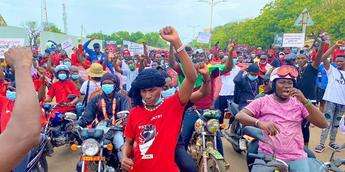
Unrealistic Expectations of Political Leaders
However, Professor Gyampo raised a critical concern about the unrealistic expectations that are often placed on political leaders during election campaigns.
He argued that the idea that all of Ghana’s problems can be solved quickly and easily is not only misleading but also dangerous.
The reality, as Professor Gyampo noted, is that Ghana faces significant challenges that will require time, effort, and sacrifice to overcome, admonishing that it is essential to manage these expectations, especially among the youth, who may be more susceptible to promises of rapid change.
“Around this time, every cohort in the voting population would want to hear something about what can be done to help them. But realistically, it would take a lot of strenuous effort to properly rebuild what has been destroyed and regain what is lost.
“In this regard, young people must be made to know quite frankly that, given the challenges that lie ahead of us as a people, it would have to be tough before it becomes easier”.
Professor Ransford Van Gyampo, a Political Science Lecturer at the University of Ghana
Professor Gyampo emphasized that rebuilding what has been lost and addressing the myriad issues facing the country will not be an overnight process.
He urged Ghanaian citizens to tighten their belts a little more, from both political leadership to the ordinary citizens, adding that “from the topmost politician to the party footsoldier”, all must brace themselves to endure a little more suffering, after which things would begin to ease up.
In this context, Professor Gyampo urged political leaders to adopt a messaging strategy similar to that of former President Jerry Rawlings during his 1996 campaign.
He indicated that former President Rawlings, known for his candidness, refused to make grand promises, instead, he pledged hard work and perseverance, which he argued would eventually lead to the fulfilment of the people’s needs.
This approach, Professor Gyampo noted was grounded in realism, and helped set the stage for his successful re-election bid.
The renowned political scientist in conclusion affirmed his position, asserting that while it is important to engage the youth and address their concerns, it is equally important to do so with honesty and transparency.
He warned that overpromising and underdelivering can lead to disappointment and disillusionment, which, in turn, could threaten the very foundations of Ghana’s democracy and peace.
Professor Ransford Van Gyampo’s insights offer a critical perspective on the need for political leaders to be realistic and transparent in canvassing for votes in election season.
As the country gears towards the December 7 polls, his advice and call for realistic dialogue with the youth is not just timely but it is essential.
By addressing the concerns of the younger generation with honesty and foresight, Ghana can ensure that its democracy remains strong and its future secure.
READ ALSO: Nana Ama McBrown Explains Why She Stopped Acting In Nollywood Movies





